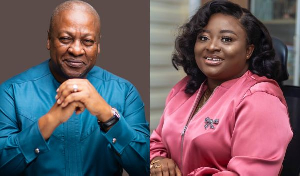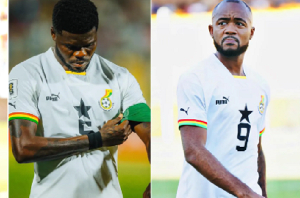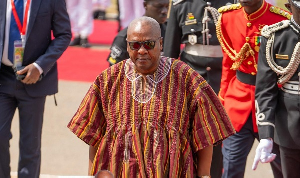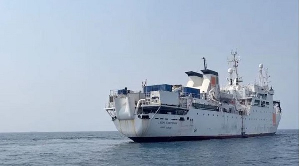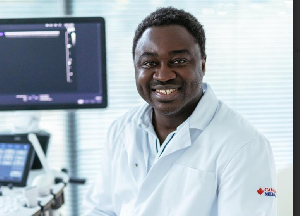It is Time for IMF to Select a Managing Director from a Developing Country The International Monetary Fund has 187 member countries, and, all candidates, regardless of the country of origin, need consideration for the Managing Director (MD) position and not revert automatically to a European.
Since its formation in 1947, the International Monetary Fund (IMF) has had ten managing directors, and all were Europeans. Four of these MDs came from France. It is time for the major powers within IMF, the United States and European Union, to embrace new leadership, which means to choose a new MD from a developing country.
The IMF is a fund set by member nations for the members as a system for economic cooperation towards macro-economic stability. The members draw from the fund when necessary to meet certain economic imbalances. Before the additional capitalization to $750 billion in 2009, the fund had a capital of about $280 billion.
For the period of 2008 and 2009, things looked bleak for USA and some advanced economies in Europe. IMF faced excessive demand for the fund’s financial support by some members in Europe, particularly Spain, Portugal, Greece, and Ireland. It became imperative for IMF to seek an infusion of additional capital.
The developing countries, especially Brazil, Russia, India and China collectively called the BRIC, and Japan contributed most of the capital needed to boost the IMF. The developed countries were hurting, but the developing countries were flush.
A new world economic order was ushered; the so-called rich nations had to be bailed out. The European Union (EU) members like the United Kingdom (UK), Ireland, Portugal and Spain could not contribute as much capital as the BRIC; yet the four BRIC countries get about 10.68 percent of the IMF votes. The developing countries were responsible for the additional funds that IMF dishes out to its members. Europe is the biggest borrower from IMF and the developing countries are the biggest lenders to IMF. If this is the case, then, why does the IMF continue to revert to Europe the position of managing director? This unfair assignment of voting rights relies on the size of worldwide economies after World War II. Economic power has shifted since WW II from Europe and America to the developing countries, especially the BRIC, but the IMF retains the old structures to the benefit of Europe and America.
The 27 states that together form the European Union (EU) hold over 33 percent of the votes in the IMF and the United States holds about 17 percent. As long as EU and America unite behind a candidate, it does not matter the qualifications of other candidates, the one supported by EU and America wins the MD spot. America plus EU hold over 50 percent and all the other members combined hold less than 50 percent of the votes.
The IMF follows an antiqued system of voting which smacks the democratic processes that America and Europe preaches. IMF has 24 executive directors; one each from USA, France, UK, Germany and Japan. The rest of the memberships is divided into 19 constituencies, each with a director who votes for the constituency represented. The voting powers of the constituencies depend on the economic influence of the countries within the constituency.
China, which is the second largest economy in the world, has 4 percent of the votes, whilst UK has 4.3% and France has 4.52%, but the economies of UK and France combined are less than the size of the Chinese economy. Germany holds another 6.14% of the votes. Well, that is the way IMF does its math of proportional representation.
The IMF is in the process of selecting a new MD after Dominique Strauss-Kahn (DSK) resigned over sexual assault charges in New York for forcing sex with a hotel maid. Three candidates- Agustin Carstens, Christine Lagarde, Trevor Manuel - have emerged.
Manuel is the former finance minister of South Africa. He studied engineering and law. 44 African countries form two constituencies with fewer than 5 percent of the total votes. So just forget an African ever becoming an MD. An African from the continent cannot conjure up enough votes to win the MD spot unless Manuel gets the endorsement of the United States and the European Union. Carstens comes with an impressive record of accomplishments. He holds a PhD in economics from the prestigious University of Chicago, and the position of Governor of the Mexican Central Bank. He served for three years as Deputy MD of IMF. One would expect that a former or current deputy MD will get a promotion to fill the vacant MD spot. Unfortunately, Mexico belongs to a constituency of eight countries with voting power of 5%.
Lagarde is the finance minister for France, and its former minister of agriculture. She is the only female finance minister in the Group of Eight (G8) advanced economies, but she is a lawyer and not an economist. Lagarde served as the chairperson of the prestigious international law firm Baker & McKenzie, and she is an expert on trade in Europe. Lagarde belongs to the rich voting bloc within the EU.
What prevents someone with the record of achievements of Carstens is that he is not European. Some countries in Europe are facing financial problems. Unless IMF bails out Greece and Portugal, they will fall into bankruptcy. IMF needs an economist with experience in dealing with financial crisis, and not a lawyer, at the helm.
In the end, credentials and experience might not matter, but the voting block or country of origin determines if one gets the chance to head the IMF. The current method of selecting the MD of IMF is not fair to the developing countries because of the way IMF assign voting power to its members outside the US, France, Germany, UK, group.
By Kofi Amoabin. Send comments to adansi@inbox.com
Opinions of Tuesday, 14 June 2011
Columnist: Amoabin, Kofi






